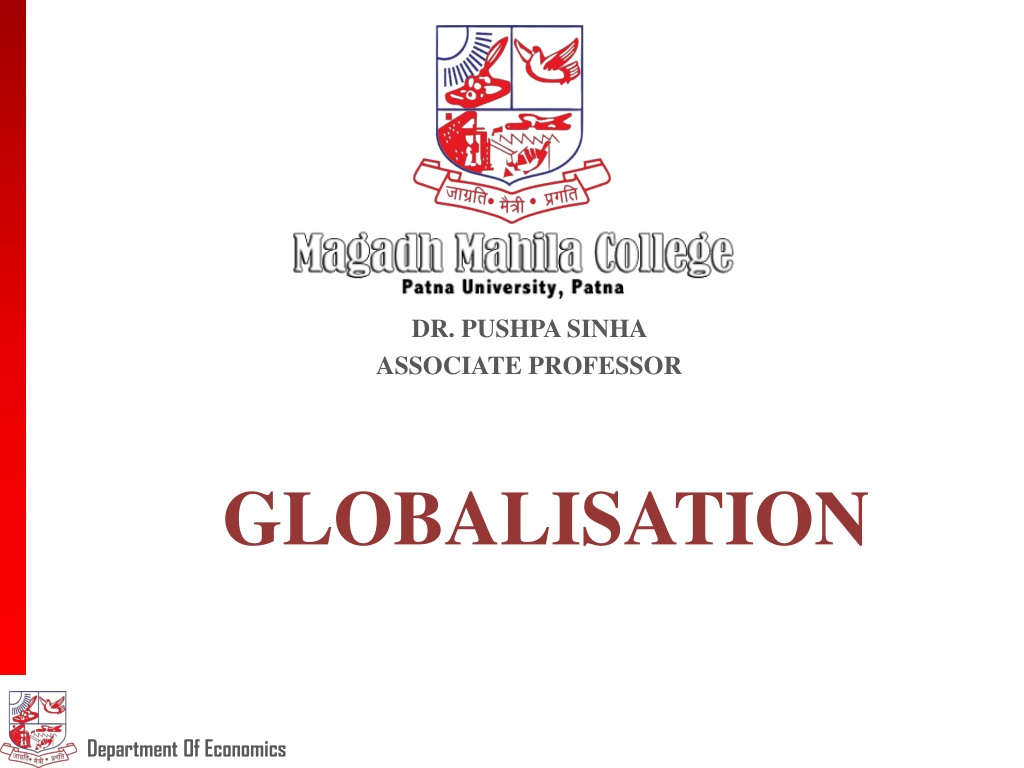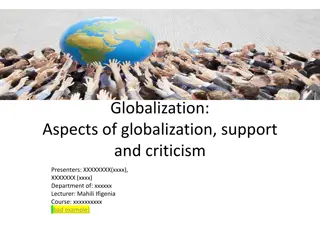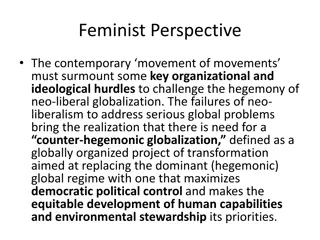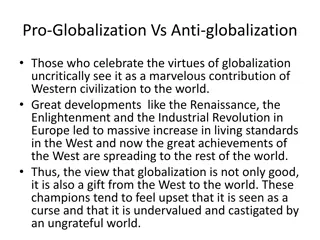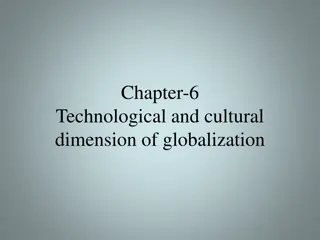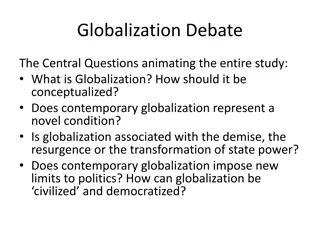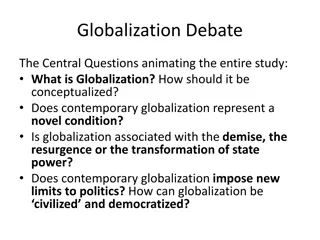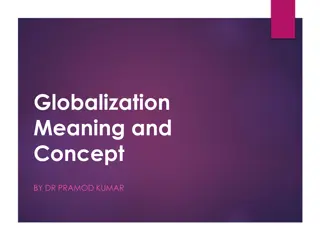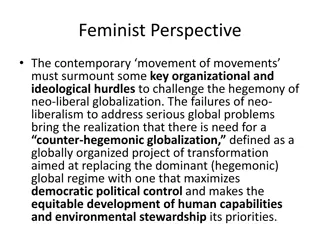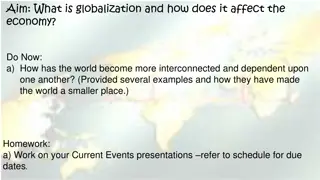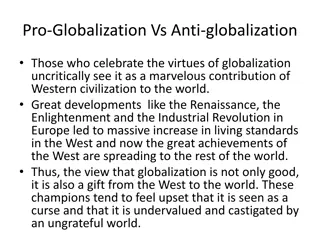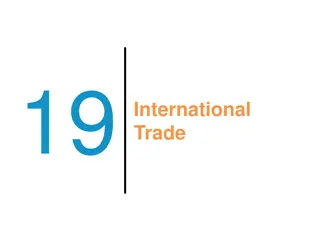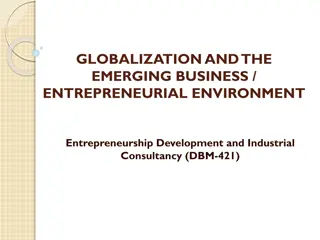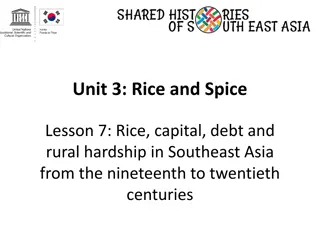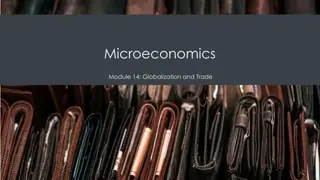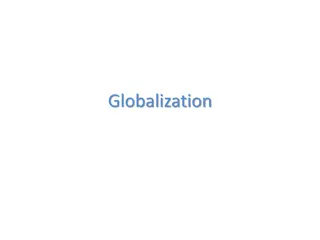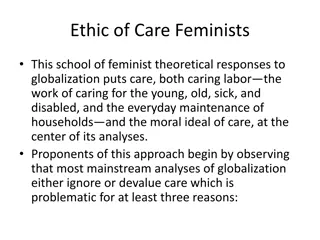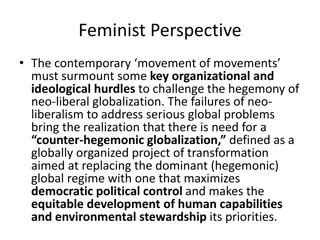Understanding Globalization: An Economic Perspective
Globalization, a process of increased economic integration and interdependence among countries, has shaped modern economies. This article explores the impact of globalization on trade, capital movement, and technology flow. It also delves into the reasons for globalization in India, including economic crises and policy changes. Advantages such as FDI promotion and technology utilization are highlighted.
Download Presentation

Please find below an Image/Link to download the presentation.
The content on the website is provided AS IS for your information and personal use only. It may not be sold, licensed, or shared on other websites without obtaining consent from the author. Download presentation by click this link. If you encounter any issues during the download, it is possible that the publisher has removed the file from their server.
E N D
Presentation Transcript
DR. PUSHPA SINHA ASSOCIATE PROFESSOR GLOBALISATION Department Of Economics
INTRODUCTION TO GLOBALISATION Globalization refers to the process of deepening economic integration, increasing economic openness and economic interdependence between countries in the world economy. All the international relations are mostly based on economic relation between the countries. This is a gift of globalization to the world. Now no economy is self subsistent or closed every single one is opened to the world. Indian economy adopted globalization process in 1991 with the adoption of new economic policy. 2 Department Of Economics
PROCESS OF GLOBALISATION Trade of good and services Goods and services are traded worldwide. Almost every country is dependent on other for its trade related requirements. And whole world become a big village. Movement of capital from one country to another It is also marked by the movement of capital inward or outward for getting the appropriate advantage of the capital. Investment or movement of foreign finances foreign finances are another important process of globalization. 3 Department Of Economics
FOUR PARAMETERS OF GLOBALISATION Reduction in trade barriers. Environment for free flow of capital Permitting free flow of technology Free flow of labour 4 Department Of Economics
REASONS FOR GLOBALISATION IN INDIA BOP crisis of 19190-91 - The country India had not enough foreign exchange to finance for more than fourteen days. Gulf War of 1990-91 - This reduces remittances for the country. Most of its citizens are working in gulf countries. So , this region was the hub of foreign exchange for the country. But the war made them unemployed and added to the crisis. The second oil shock - Pushed up the import bills while export lagged behind. This made the country more vulnerable. The energy requirements are high and the export receipts are very small to finance them. 5 Department Of Economics
Current account deficit - These above conditions made the current account in trouble. Hyper inflation -The inflation was soaring high. Due to all these imbalances the hyper inflation condition came into existence into the country. Increasing public debt and defaulting These condition forced the country to be indebted. As the defaulter no country was ready to give the loan or assistance to India and thus IMF helped but with some conditions. 6 Department Of Economics
ADVANTAGES OF GLOBALIZATION Promote FDI and raise capital of developing economy. Make use of technology developed by advanced economy without investing in research and development. Access of developed countries market and their product to developing countries consumer. Faster diffusion of knowledge and in production and productivity. Reduces cost of transportation and communication, tariff, etc. 7 Department Of Economics
STEPS TOWARDS GLOBALISATION: Exchange Rate Adjustment and rupees convertibility- IMF insisted on devaluation of Indian rupees thus govt. 18-19% reduction in the exchange rate value. Further in subsequent years govt. progressively moved towards full convertibility. Import Liberalization- Export- import policy allowed the free import of all items except the some items and the import duties reduced from 110% to 10%. Opening up of foreign capital- FDIs and FIIs are allowed and automatic permission was granted for 51% and was further raised to 100%.they are allowed to invest in capital market,manufacturing, SEZs, telecom, pharma,etc. 8 Department Of Economics
IMPACT OF GLOBALISATION: Trade- Trade,import,export all has been increased but the import s bill has increased much larger than the export. Foreign Investment Flows- FDIs and FIIs helps in increasing the productive capacity in the economy. But fluction in foreign portfolio investment was much larger than the foreign direct investment.it has also been increased mostly concentrated in service sector. But FDI outflow also nulifying the inflow. Empolyment condition- the unemployment has been increased along with increasing empolyment in unorganised and temporary casual workers. The wages are also lowerwd increasing the exploitation. 9 Department Of Economics
Advanced countries profit- They demand many concession and reduction of tariff from developing countries. Feminization of labour- This increased the women workers in in the low paid job like in manufacturing specially in Asia. Weakening of welfare state in favour of market- The role of state has been minimized. It lacked in providing proper infrastructure especially in rural area. The social responsibility is also lacked. Fiscal Deficit- fiscal deficit and the public debt has decreased considerably. Poverty- Though the poverty has been decreased in percentage bt the absolute value is very high and the pase is also slow. 10 Department Of Economics
Inequality - uncompetitive and small enterprises can not compete with the cheap import product. The wages are also decreased. The inequality has been increased as the 11 Department Of Economics
THANK YOU 12 Department Of Economics
